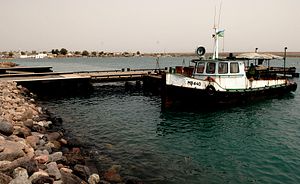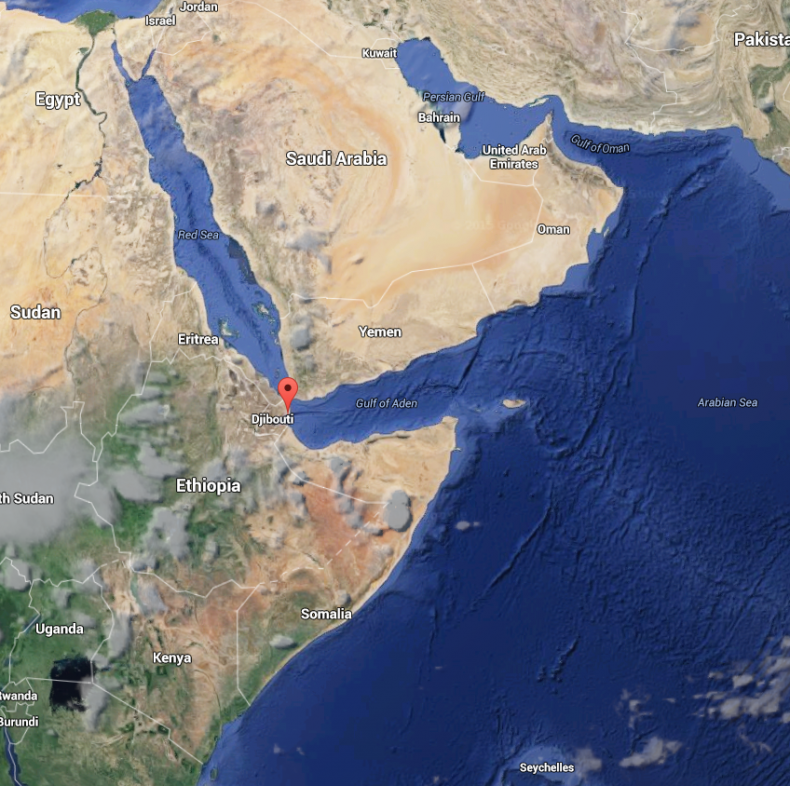Last week, China’s Ministry of Defense confirmed for the first time that construction on “support facilities” for the People’s Liberation Army-Navy (PLAN) in Djibouti, on the Horn of Africa, has started. Colonel Wu Qian, a spokesperson for the Chinese defense ministry, said on Thursday that “construction of infrastructure for the support facilities has started, and the Chinese side has dispatched personnel to Djibouti for relevant work.” China has been careful to avoid describing its facility in Djibouti as a “military” or “naval” base, preferring to use the terms “support facilities” or “logistical facilities” instead. Djibouti hosts military and support facilities for the United States, France, and even Japan’s Maritime Self-Defense Forces.
According to Wu, China will use the bases primarily to ensure that PLAN ships carrying out anti-piracy patrols in the Gulf of Aden, western Indian Ocean, and the Arabian and Red Seas are able to resupply and receive maintenance without making the long journey across the Indian Ocean to Chinese naval bases on the mainland. Wu added that the “facilities will mainly be used for logistical support and personnel recuperation of the Chinese armed forces conducting such missions as maritime escort in the Gulf of Aden and waters off the Somali coast, peacekeeping and humanitarian assistance.”
Reports regarding China’s interest in a coastal base in Djibouti emerged for the first time early last summer, when Djibouti’s president, Ismail Omar Guelleh, confirmed that Djibouti and China had entered talks on the possibility of a naval base in the port city of Obock, along the northern coast of the Gulf of Tadjoura. In November 2015, China publicly confirmed that it would establish a facility in Djibouti. In late Janaury 2016, the two sides “reached consensus” on the terms under which the facilities would be built. The time frame over which China conceived of and began the construction of this facility–hardly nine months–is notable. Beijing could conceivably pursue similar initiatives with other Indian Ocean littoral states over a similar time span.
The optics of the establishment of China’s first overseas naval base vary widely. China sees the addition of this facility at Djibouti as a development that will help its navy fulfill its humanitarian assistance, anti-piracy, and disaster relief missions in the area. Indeed, the PLAN has long been active against pirates off the coast of Somalia and in the Gulf of Aden and, last year, after Saudi Arabia began a bombing campaign in Yemen, was involved in evacuating Chinese and foreigners alike. Obock, in particular, has hosted PLAN ships regularly. For Beijing, the Djibouti base is a testament to the PLAN’s increasingly global role as a provider of public goods on the high seas.
Not all states will share China’s view of this facility in Djibouti. For India, for example, the addition of a base along the Indian Ocean’s periphery will serve to intensify long-standing fears regarding a Chinese “string of pearls” encircling it; Indian analysts and observers have long-feared that China’s investment in civilian ports in the region is leading up to a sudden proliferation of dual-use or military facilities in the Indian Ocean region.
The United States, similarly, has taken note of Chinese operations in the western Indian Ocean. Last year, the U.S. Department of Defense confirmed, for the first time, that China’s nuclear powered Shang-class and Song-class submarines have deployed in the Indian Ocean. If these submarines continue to operate in the region and perhaps even make an appearance at Obock, it would suggest that China sees its Djibouti facility as a naval base designed to fully support the PLAN’s expeditionary expansion toward West Asia and beyond. (Nuclear submarines armed with YJ-18 supersonic anti-ship missiles typically aren’t necessary for humanitarian assistance or anti-piracy missions.)


































